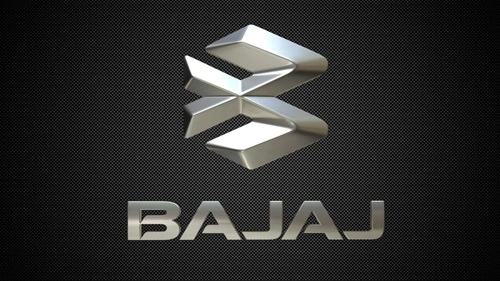The Bajaj Group, a prominent Indian conglomerate, has showcased significant financial growth and strategic diversification. Bajaj Auto reported a 23% increase in net sales for FY2024, reaching ₹43,579 crore, with a 33% rise in profit after tax to ₹7,479 crore.
Bajaj Finance unveiled its long-range strategy for FY25-FY29, introducing initiatives like solar and electric vehicle financing for retail and MSME customers, targeting ₹2,000 crore in green financing by Q4 FY25.
In a strategic move into healthcare, the Bajaj Group announced an investment of ₹10,000 crore to establish a nationwide chain of hospitals, aiming to enhance India’s healthcare infrastructure.
These developments underscore the Bajaj Group’s commitment to growth and diversification across various sectors now let’s deep dive into the SWOT Analysis of Bajaj Group.
Strengths
- Robust Financial Performance: Bajaj Auto, the flagship company, reported a net profit of ₹7,479 crore in FY2024, reflecting consistent growth across all quarters.This performance underscores the company’s resilient business model and strong domestic market presence.
- Diversified Business Portfolio: The Bajaj Group comprises 37 companies operating in various industries, including automobiles, finance, and electricals. This diversification mitigates risks associated with dependence on a single sector and allows the group to leverage synergies across different markets.
- Strategic Collaborations: Bajaj Auto’s partnerships with global brands like Triumph Motorcycles have expanded its product portfolio and enhanced its brand positioning in the premium motorcycle segment.
- Commitment to Corporate Social Responsibility (CSR): The group has pledged ₹5,000 crore over five years towards social impact initiatives, focusing on skill development under the ‘Bajaj Beyond’ program. This initiative aims to benefit over two crore youth, aligning with national development goals.
- Innovation and Technological Advancement: Bajaj Auto’s introduction of the world’s first CNG-powered bike demonstrates its commitment to innovation and sustainable mobility solutions.

Weaknesses
- Export Market Volatility: While Bajaj Auto has a strong domestic presence, its export volumes have faced challenges due to economic and political uncertainties in key overseas markets. This exposure to global market fluctuations can impact overall performance.
- Dependence on Two-Wheeler Segment: A significant portion of Bajaj Auto’s revenue is derived from the two-wheeler segment. This reliance makes the company vulnerable to shifts in consumer preferences and regulatory changes affecting this market.
- Profit Margin Pressures: Despite achieving record net sales, Bajaj Auto has experienced declining profits and earnings per share in certain periods, indicating challenges in maintaining profit margins amidst rising costs and competitive pressures.
- Exposure to Rural Demand Fluctuations: A substantial portion of Bajaj Auto’s sales comes from rural areas. Factors such as monsoon variability and agricultural income can significantly influence demand, affecting the company’s sales performance.
- Regulatory Compliance Challenges: The introduction of new emission norms and safety regulations requires continuous investment in technology upgrades, posing challenges in compliance and cost management.
Opportunities
- Expansion in Electric Vehicle (EV) Segment: With the global shift towards sustainable transportation, Bajaj Auto’s focus on electric vehicles, exemplified by the growth of the ‘Chetak’ electric scooter, positions the company to capture emerging market demand.
- Growth in Financial Services: Bajaj Finance’s unveiling of ‘BAF 3.0’ and its long-range strategy for FY25-FY29, focusing on leveraging artificial intelligence and green finance, presents opportunities for growth in the financial sector.
- International Market Penetration: The group’s plans to expand its footprint in international markets, including Africa, Latin America, and Southeast Asia, offer avenues for revenue diversification and growth.
- Leveraging Digital Marketing: Bajaj Auto’s focus on digital marketing and branding approaches enhances customer engagement and broadens market reach, aligning with contemporary consumer behavior trends.
- Infrastructure Development Initiatives: Government initiatives focusing on infrastructure development can boost demand for commercial vehicles, providing growth opportunities for the group’s automotive segment.
Threats
- Intensifying Competition: The automotive industry faces fierce competition from both domestic and international players, necessitating continuous innovation and competitive pricing strategies.
- Economic Slowdowns: Global and domestic economic downturns can adversely affect consumer spending, impacting sales across the group’s diverse business segments.
- Regulatory Changes: Stringent environmental regulations and policy shifts can impose additional costs and operational challenges, particularly in the automotive sector.
- Supply Chain Disruptions: Dependence on global supply chains exposes the group to risks such as component shortages and logistical challenges, which can disrupt production and sales.
- Technological Disruptions: Rapid advancements in technology require continuous investment in research and development to stay competitive, posing challenges for companies unable to adapt swiftly.
Conclusion
As of 2025, the Bajaj Group stands as a diversified and resilient conglomerate with a strong financial foundation and a commitment to innovation and social responsibility. By addressing its weaknesses, such as export market volatility and profit margin pressures, and capitalizing on opportunities in the EV segment and international markets, the group can navigate the dynamic business environment effectively. Proactive strategies to mitigate threats, including intensifying competition and regulatory changes, will be crucial in sustaining growth and maintaining its leadership position across various industries.
Anantha Nageswaran is the chief editor and writer at TheBusinessBlaze.com. He specialises in business, finance, insurance, loan investment topics. With a strong background in business-finance and a passion for demystifying complex concepts, Anantha brings a unique perspective to his writing.


